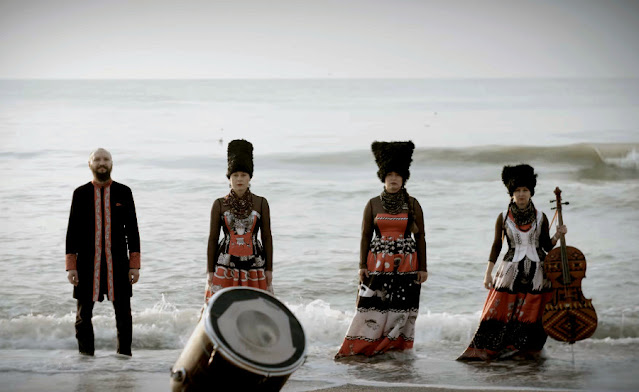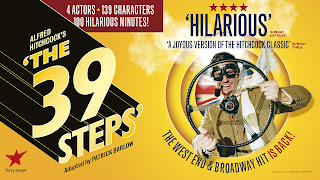Why we should stop thinking that animation is just for kids.
This years oscars were certainly tumultuous and are likely to be remembered for years to come. However with all the commotion and the media's outcry about the 'dreaded slap' everything else that seemed to happen at the Oscars fell under the radar. One such incident which received little attention was the comments made about animation which were overly negative, indeed one presenter stated that "Animation is something kids enjoy, and Adults have to endure". After multiple comments were made about animation being a medium that only kids can enjoy, many animators and creators voiced their annoyance at the stereotypical comments made at animations expense, especially given such comments were made at an award show which was meant to celebrate the industry. I personally believe that the annoyance was justified as this was not just a one off occurrence. Animation is so often denounced as being strictly for children, with R-rated animation being denounced as unintellectual and crude. Yet, as I will discuss within this blog post this common characterisation of animation is simply unfair and completely ignores the multifaceted nature of animation and the beauty it often expounds.
Animation is expected by many to produce basic narratives which are either easily digestible for children or insanely rude/crude for adults. Yet this is an oversimplification of many narratives present in most animation. Whilst there are many animated movies which have simple plots which are largely driven by flashy colours and being marketable to even the youngest of children, many others contain narratives which are deeper and more compelling than the majority of their live action counter parts. For example, Bojack Horseman, despite often being dismissed as simply a funny cartoon about a horse, strangely produced some of most realistic storytelling on any streaming service. Their Narratives surrounding mental illness, addiction, loss of self and suicide are some of the most compelling i've witnessed. Their examination of mental illness is is truthful and hard hitting and more so accurate than most narratives surrounding mental health in live action productions. The narratives featured in Bojack Horseman are far departed from the simple crudeness often associated with adult animation. 'My Life as a Courgette' is another animation project which produces a compelling narrative, it is far darker than most would expect from its colourful animation and is far departed from the cheerful and simplistic storylines often associated with animation. Indeed, it is because My Life as a Courgette's medium is animation that its story can be as dark as it is. There is a layer of separation from reality which allows for the story to be told without moral outrage or for it to be uncomfortable to witness, as using real actors, especially child actors, would certainly make many scenes unbearable to watch, which would of course subtract focus from the story thats being told. Indeed, animation can help convey narratives which contain abuse and death better than live action film, as through such medium stories surrounding tough subject matter can be told without drawing away from the narrative wishing to be told. Therefore, we can hardly state that animation is just for kids when many narratives are far more compelling, complicated and dark than live action media.
Of course, both pieces of animation I have mentioned here is animation made with an adult audience in mind, however animation having a PG or U rating does not necessitate that the narrative would be too simplistic for an adult to enjoy. Indeed many 'kids' cartoons are often made with such care that they can be enjoyed on a deeper level than that which the child may understand. One animation that comes to mind is 'Over the Garden Wall' a limited series that ran on Cartoon Network in 2014. Over the Garden Wall is as close to a horror story which an animated show made for a children's channel can get. Its animation style, the darkened woods and terrifying creatures, instantly produces a sense of dread and the demeanour of the side characters produce a certain form of eeriness that many R-rated horrors lack. The narrative itself is exceptionally dark for a children show, with (Spoilers) a young child almost losing his life to the main villain in an attempt to save his older brother. We are also met with a twist in the penultimate episode which has been crafted so brilliantly that it not only reveals more about the story's setting but compels you to rewatch the series to find hidden details you may have missed. Whilst Over the Garden Wall is suitable for children it is clearly not intended for just children to view, with a clever plot and dark themes which would go under appreciated by younger audiences, Over the Garden Wall surely can be enjoyed by adults and not just endured.
Furthermore, animation is it self an art form. Animation goes through a long creative process, in which characters are designed with certain colours, movements and characteristics as to match their personality, they are then animated by a team of talented artists who are responsible for smooth transitions and producing exuberant expressions to convey emotions that simple speech cannot convey. Whilst all forms of animation is a form of art to a degree, its not unfair to admit that some animation is lacklustre and dull and barely contributes to the arts at all and is perhaps art on the same level as a clipart image. But there is plenty of animation which is beautiful and perhaps even comparable to that of works of art found in galleries. Take the film 'Loving Vincent' for example, the animation present is entirely different from any animation that came before it in that it was animated through painted canvases. Each frame produces a wonderfully unique piece of art with almost as much colour and joy of Van Goghs art itself. For one to watch Loving Vincent is to appreciate art which is no different from one appreciating art in a gallery. How then can we state that adults only endure animated films if they do not endure their viewing of pieces of art. And its not simply the animation in Loving Vincent that can be considered art. One simply need to view many of Studio Ghibli's movies to determine this. Indeed, the backgrounds are often so full of detail, with soft lighting and a form of fantastical realism that one can become instantly comforted by a Ghibli setting. Furthermore the food seen in Ghibli films has been animated to be both realistic but also have a near perfection which can actually make you hungry upon viewing it. The fact that the animation in a Ghibli film can and often does stir up emotions such as that of comfort and relaxation, means it can be viewed as an art form somewhat comparable to that of Monet's Poppies, for example, which is heralded for bring a feeling of comfort to the viewer. Indeed, then we can say that given the artistic power animation can hold it is a complete disservice to claim that animation is simply for children. Adults have the ability to appreciate animation as medium in ways which children cannot, many adults are more attentive to the style and the beauty animation holds. To claim that animation is strictly for children, even the animation produced with children in mind, is to claim that animation cannot and should not be a appreciated as an art form, which seems to be entirely counterintuitive.
Therefore, it seems entirely unfair to dictate that animation is just for kids. Indeed, whilst there is animation which is strongly targeted towards children, which most adults would find little enjoyment in, the majority of animated films and tv shows are also crafted for adults. With exceptional narratives and wonderful artwork in many pieces of animated media its hard to see why animation is simply something for adults to endure, especially as many animated pieces are far more impressive than many live action works. Indeed, I think its time we retire the old stereotype that animation is just for kids.





Comments
Post a Comment